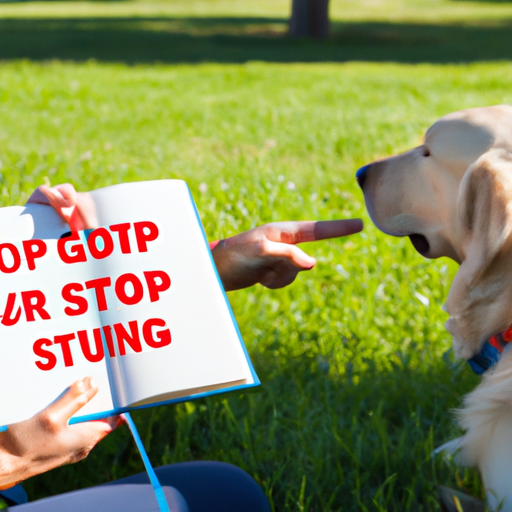Barking is a normal behavior for dogs. However, excessive barking can be a problem. Here’s a guide to help you train your dog to stop barking unnecessarily.
Understanding Why Dogs Bark
First, understand why your dog might be barking:
- Attention-seeking: Your dog wants food, a toy, or your attention.
- Alarm/Fear: Something has startled or scared your dog.
- Boredom/Loneliness: If a dog is not getting enough exercise or mental stimulation, it may start barking.
- Greeting/Play: Dogs often bark when greeting people or other animals.
- Health issues: Some health issues can cause excessive barking.
Identifying the Trigger
Identify what triggers your dog’s barking. This will help you address the issue more effectively.
- Time of day: Does your dog bark at specific times, like when you’re preparing food or when the mailman comes?
- People or animals: Does your dog bark at specific people or animals?
- Environment: Does your dog bark in response to certain noises or events?
Removing or Mitigating the Trigger
Now that you’ve identified the trigger, you can work on removing or mitigating it.
- Changing the environment: If your dog barks at people walking by the window, try closing the blinds or moving your dog to another room.
- Providing mental stimulation: If your dog is barking out of boredom, provide toys or puzzles to keep it occupied.
- Exercise: Regular physical activity can help reduce excessive barking.
Using Training Techniques
Several training techniques can help control excessive barking.
Teach the “Quiet” Command
- Wait for your dog to start barking, then say “Quiet” in a firm but calm voice.
- If your dog stops barking, reward it with a treat or praise. Repeat until your dog learns to associate the command with stopping barking.
Ignore the Barking
- If your dog barks to get your attention, ignore it completely.
- Once your dog stops barking, turn around, praise it, and give it a treat.
Remember, consistency is key in training. Everyone in your household should use the same commands and follow the same rules.
Using Positive Reinforcement
Always use positive reinforcement when training your dog.
- Reward quiet behavior: If your dog is being quiet when it would normally bark, reward it.
- Avoid punishment: Punishing your dog can increase stress and anxiety, leading to more barking.
Consulting a Professional
If your dog’s excessive barking continues despite your best efforts, consider consulting a professional dog trainer or a veterinarian. They can help identify any underlying issues and suggest effective treatment methods.
| Professional | When to Consult |
|---|---|
| Dog Trainer | If your dog doesn’t respond to training at home, or if you’re not comfortable training your dog. |
| Veterinarian | If you suspect that your dog’s barking is related to a health issue. |
FAQ
Q: How long does it take to train a dog to stop barking?
A: It varies depending on the dog and the reason for barking. Consistency is key in training.
Q: My dog barks at night. What can I do?
A: Your dog might be barking due to fear, boredom, or a need to use the bathroom. Try providing a comfortable sleeping area, plenty of exercise during the day, and a bathroom break before bed.
Q: Can certain dog breeds bark more than others?
A: Yes, some breeds are more prone to barking than others. However, any dog can learn to control their barking with proper training.
Remember, it’s normal and healthy for dogs to bark. The goal of training should be to limit unnecessary barking, not to stop your dog from expressing itself entirely. With patience and consistency, you can help your dog become a quieter and happier member of your household.



